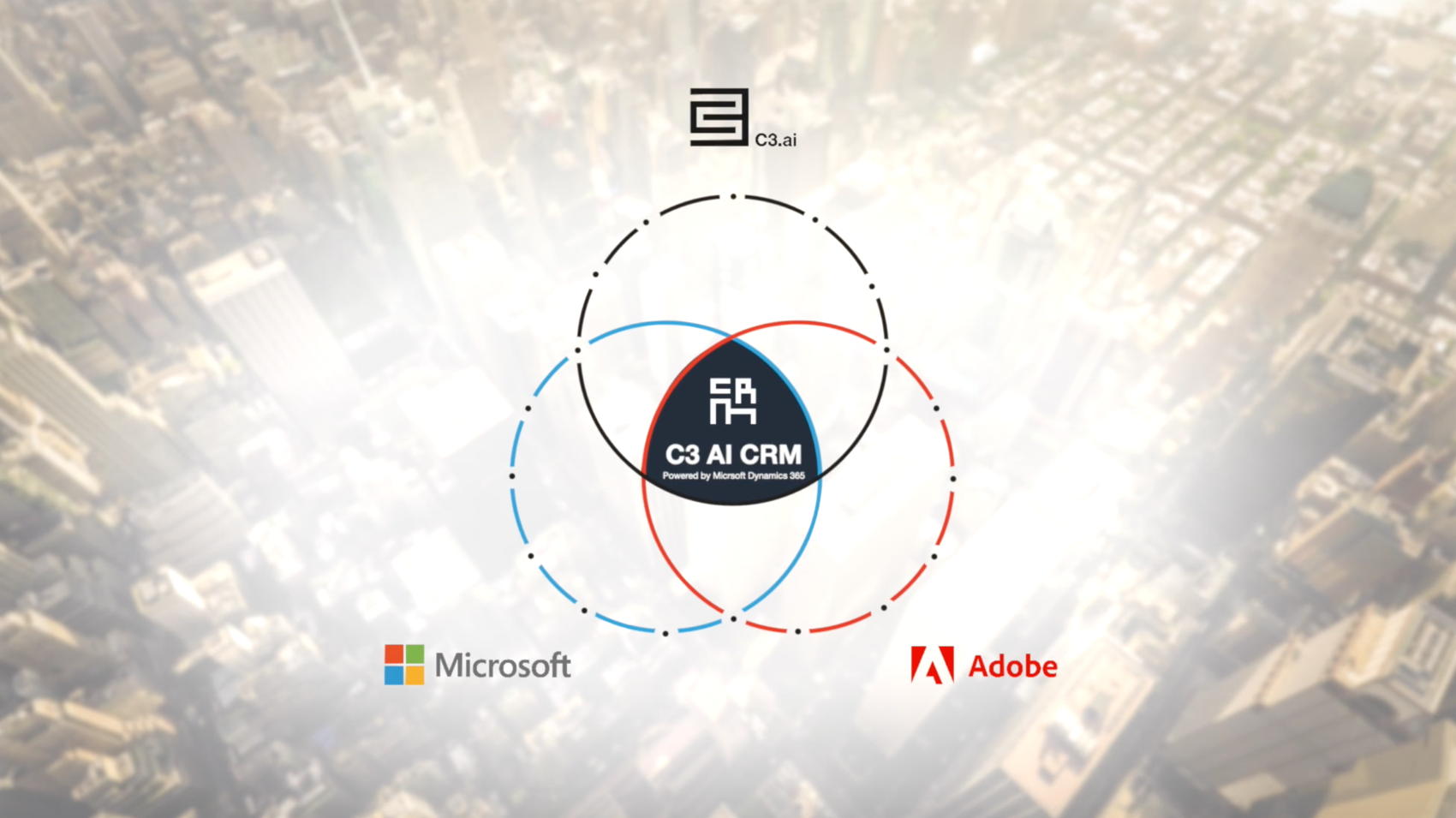Microsoft, Adobe and C3.ai have joined forces to use artificial intelligence (AI) to reinvent customer relationship management (CRM).
The new product, C3 AI CRM, is powered by Microsoft Dynamics and fully integrates with Adobe Experience Cloud. The goal is to deliver “the first enterprise-class, AI-first customer relationship management solution is purpose-built for industries.”
Salesforce, in particular, should be worried by this development. Microsoft has been trying for years to dethrone Salesforce as the CRM king, with little success. While Dynamics 365 has certainly carved out a corner of the market, Salesforce is still the undisputed leader.
The combination of Dynamics’ foundation, C3.ai’s artificial intelligence and Adobe’s “AI-driven solutions for marketing, analytics, advertising, and commerce” may be just the winning combination Microsoft has been looking for.
“This year has made clear that businesses fortified by digital technology are more resilient and more capable of transforming when faced with sweeping changes like those we are experiencing,” said Satya Nadella, CEO, Microsoft. “Together with C3.ai and Adobe, we are bringing to market a new class of industry-specific AI solutions, powered by Dynamics 365, to help organizations digitize their operations and unlock real-time insights across their business.”
The companies made a point of highlighting how the digital transformation had changed the requirements for a CRM solution, with general-purpose software no longer meeting customers’ needs.
“Microsoft, Adobe, and C3.ai are reinventing a market that Siebel Systems invented more than 25 years ago,” said Thomas M. Siebel, CEO of C3.ai. “The dynamics of the market and the mandates of digital transformation have dramatically changed CRM market requirements. A general-purpose CRM system of record is no longer sufficient. Customers today demand industry-specific, fully AI-enabled solutions that provide AI-enabled revenue forecasting, product forecasting, customer churn, next-best product, next-best offer, and predisposition to buy.”
Microsoft’s open approach to data and integration have already been labeled a big advantage over Salesforce’s approach. Should this new partnership deliver on its promise, Salesforce may soon find itself scrambling to catch up.




 WebProNews is an iEntry Publication
WebProNews is an iEntry Publication